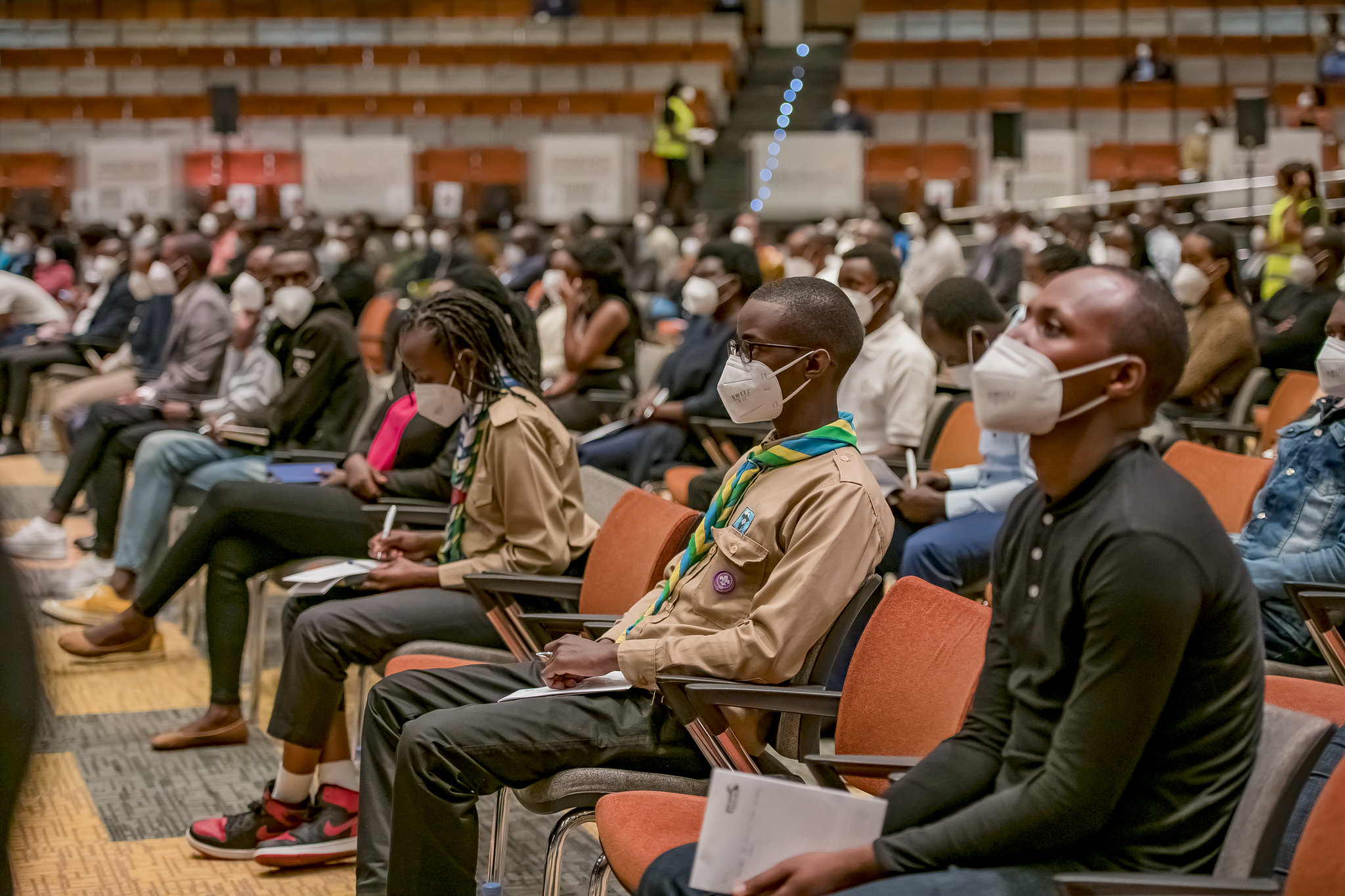

At a recent gathering that brought together youth from different parts of the country, a call was made for them to take keen interest in the affairs of the country, and to actively play a role in its development.
The annual forums, dubbed Igihango cy’Urungano, brought together at different venues across the country, thousands of youth representatives who were addressed on diverse matters critical to the country.
Key takeaways included a commitment by the youth to roll their sleeves up and get to work towards sustaining the gains made by the post-genocide leadership, in which many of these youngsters managed to get opportunities that many of the liberators could not even dream about.
The immediate task, as put to them was to take interest in the country’s history, and then use the tools available to them – mainly social media – to fight those that have made a career out of distorting the country’s history for their selfish interests.
Some of the narratives, initially propagated by those who committed the genocide against the Tutsi, promoted these narratives – for instance negating the Genocide against the Tutsi - and were dismissed as desperate attempt for them to sanitise their crimes and thereby continue evading justice.
The general feeling was that the genocide took place in broad day light and internationally, it has been officially recognized by the mandated institutions, including the United Nations. However, with the years, the same narratives were inherited by children of these fugitives, who went on a recruitment drive, to include some that are masquerading as genocide survivors.
It therefore begs for a robust campaign to expose these lies, and there is no better army to deploy for this struggle than the tech-savvy youth that we have in our country.
However, for them to be more effective, they have to first of all get the full grasp of our history, especially since many of them were young, or even not born, during the Genocide against the Tutsi.
The government and different stakeholders should make sure that these youth – both those in the country and abroad – access such history through books and other publications, while Rwandans, especially Genocide survivors are also at individual level asked to document their experiences for posterity.


